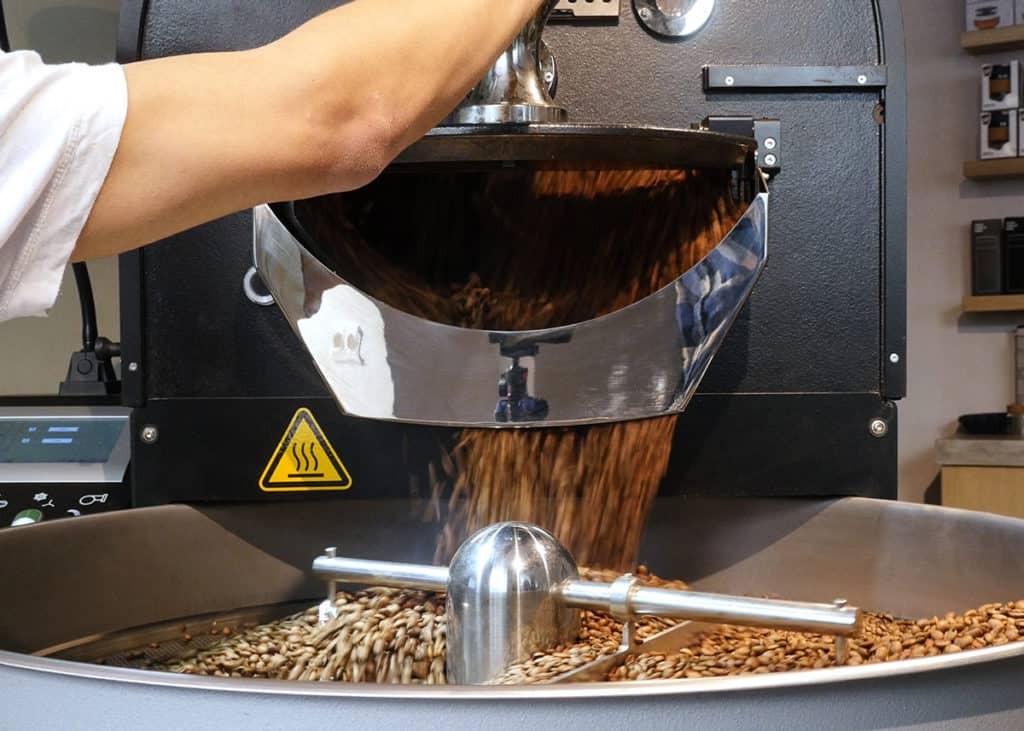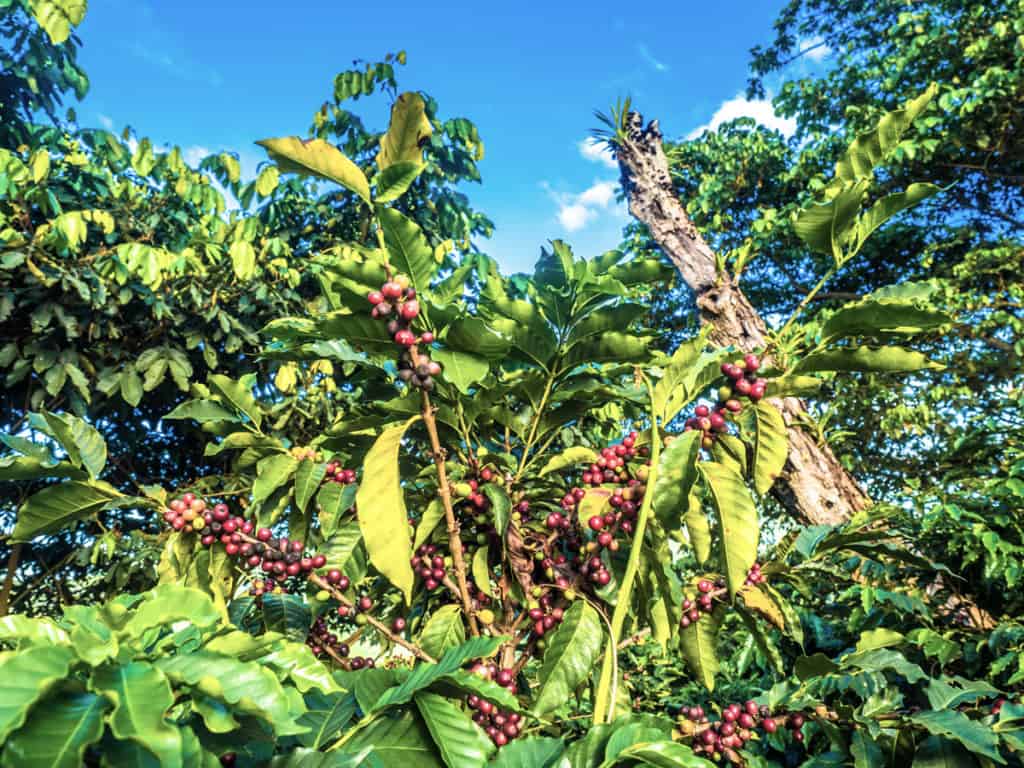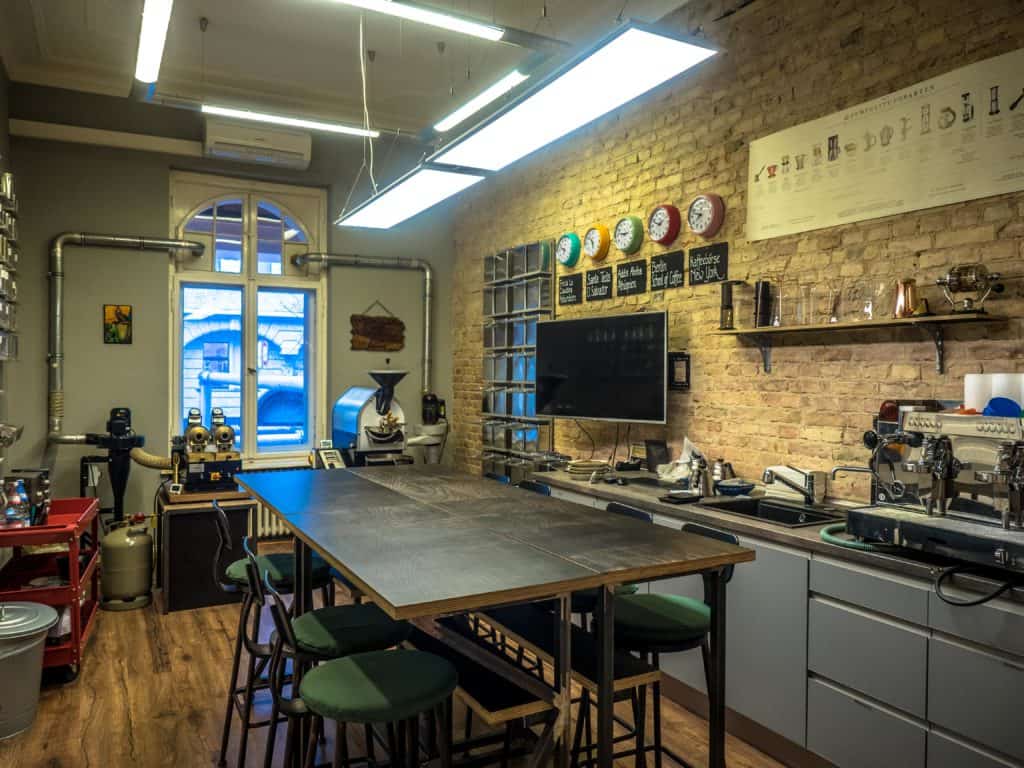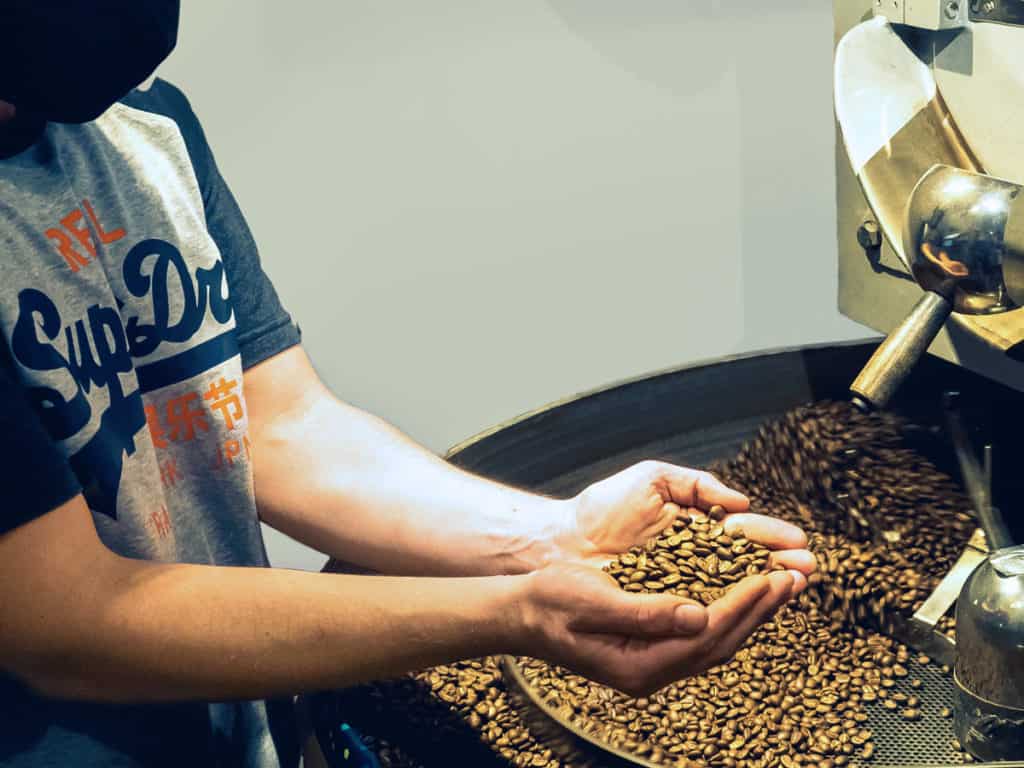Becoming a specialty coffee roaster is a dream for many coffee lovers. It is often perceived as a sought-after profession, which allows you to drink spectacular tasting coffee, have carefree interactions with admiring customers and travel to exotic countries of origin. As a customer at the hip Danish coffee roastery La Cabra once observed: “This is almost as cool as being a surf teacher.”

If you aspire to become a specialty coffee roaster, you might achieve this lifestyle, but this is far from a guarantee. The road leading there—which can be roughly split into the phases of preparing, learning, and practicing—is long and winding. At least this is the experience I had, going through each of these phases over the past two years. Is it worth making the effort and taking the risk? As often is the case in real life, the answer is: “It depends.”
The Phase of Preparing
How to Find the Right Inspiration?
If you want to become a roaster, you first have to find the right moment of inspiration. This will help you make the big decision to dedicate your future to specialty coffee.
I didn’t have the slightest idea that I wanted to become a roaster until two years ago. This all changed when I worked at a coffee cooperative in Colombia for a month, during a year-long trip around the world in 2018.

The fascinating equatorial nature, the humble people working in coffee production, the immense impact this crop has on their lives, and of course, the honey-sweet coffee itself, all mesmerized me. I immensely enjoyed the rest of my trip, but already even back then I knew: as soon as I was back home, I would start roasting coffee.
A Different Point of View
Interested in determining what inspired others to venture into coffee roasting, I talked to Francis Bratz—a Berliner who had recently started roasting professionally.
His path towards coffee enlightenment started at an Italian coffee bar, where he worked as a barista. As time passed by, he gradually realized that he was the only staff member interested in the secrets of the brewing technique and the coffee’s origin. “I was fascinated by the science behind it. Interestingly, nobody else even cared that the coffee we were serving to our customers was, simply put, over-roasted and of low quality.”
There Is no Guaranteed Formula for Finding Inspiration
So, the inspiration required to become a specialty coffee roaster seems to be a combination of passion for great coffee and a set of once-in-a-lifetime circumstances. What if things don’t stack up in the right way when you need them to?
Francis gave a great answer to this question: “When I realised that coffee is what really interests me, I decided to just listen to my guts and follow the coffee avenue wherever it might take me.” This turned out to be a great decision, as he is now well on his way to realizing his dream of owning a third wave roastery in Berlin.
The Phase of Learning
Learning Offline
The right education is, as always, of paramount importance when deciding to start a new career journey. But where should you start when you want to learn how to roast specialty coffee?
I talked to Philipp Schallberger from the coffee school Kaffeemacher in Switzerland, to get his point of view. He told me that aspiring roasters typically either find an apprenticeship at a roastery or participate in a course to acquire the necessary knowledge.

“Coffee roasting is a passion. It gives you pleasure, and it allows you to unfold your senses and abilities. But we don’t believe that it is an art. Rather, it is an artisan process that can be learned through knowledge, dedication, and practice,” he concluded.
I chose to learn the craft of roasting at a dedicated school. As I am living in Berlin, my choice fell on the Berlin School of Coffee (BSOC). There I learned the foundations of coffee as an agricultural and economic science, the groundwork for starting one’s own roastery from an entrepreneurship perspective, and of course—the theoretical and practical bedrock of coffee roasting.
The Impact of Corona and Learning Online
If you are just about to embark on this journey as of today, though, you have to consider Corona. It is possible that many roasteries won’t be hiring new staff. Many coffee schools are in turmoil too and have had to postpone all physical courses for months.
On the flip side, the forced social distancing has led to a boom in paid and free online resources and tools. Kafeemacher, for example, has expedited its paid online training platform because of the increased demand for distant learning. And, of course, social media is riding high on the wave of isolation. The selection of accounts giving advice to future roasters is increasing constantly. A few worth mentioning (in alphabetical order) which have been of great help to me are Cedar Ota Coffee, James Hoffman, Mill City Roasters, Scott Rao, and Sweet Maria’s.
Can, however, online replace offline? Sebastian von Spalding, the experienced coffee roaster who taught my course at the BSOC, had a very fitting comment for this development, about a month before the crisis unfolded.
He thought that the coffee educational industry was indeed late, compared to other industries, in its coordinated move towards online education. However, as coffee roasting is still a sensory and tactile craft, it did not allow for an entirely virtual experience. Thus, a coffee-roaster-to-be would continue to need practical experience before mastering the necessary skills.
The Phase of Practicing
Typical Options for Launching Your Career
After you have decided to become a specialty coffee roaster and have laid the foundation of your education, the more challenging (but also far more fascinating) practicing phase can begin.
What are your options? Do you dive in headfirst by applying for a large credit loan and launching a full-blown roasting business? Do you get employed at a roastery, potentially missing out on the opportunity to become independent immediately? Or do you start small by roasting on a make-shift roaster in the garage, hoping to attract clients from your immediate social surrounding?
Co-Roasting is Emerging as an Alternative
I found out, with huge relief, that in reality, I could also balance independence and security in the way I wanted. After the roasting course, I was still at the beginning of my coffee learning curve but I had already gathered business experience during my previous jobs. So, I opted for the services of a co-roasting facility. There, I could develop my roasting skills under the supervision of a professional, but I could still be responsible for the sourcing, profiling, and marketing of my coffee.

While the co-roasting scene in Europe is still underdeveloped compared to the US, there are already similar solutions here too. I am roasting, for example, at the “open roasting space”, offered by the Kiez Roastery in Berlin. To find out about such options, you just have to ask your friendly local roaster for advice. Alternatively, the abundantly available roasting groups on social media are a great source for such information.
The Impact of Corona for Your Roasting Career
Even as a freshly baked coffee professional, COVID-19 should be on the top of your mind nowadays. The lockdown has changed the daily business for many who are already practicing the roasting craft. Some, like the MKK roastery in the up-and-coming neighborhood of Moabit in Berlin, have had to limit their café operations to takeaway orders. Alfred Harlander, the owner of the roastery, said that thanks to the faithful clientele and a jump in online sales, the change in revenue has not been problematic. Others might not be that lucky though.
Having this in mind, I started out as lean as possible. I roast weekly, on-demand only, for online customers. This is a great way to gauge frequently (and with minimal resources) the change in demand for my product.
Is it worth the effort and the risk?
Going after the Lifestyle
If your reason for wanting to become a specialty coffee roaster is only to achieve a carefree lifestyle accompanied by abundant consumption of high-quality coffee, the answer is probably no.
You will end up paying the high price of many sleepless nights, wondering whether your roasting project will take off. You will also face a multitude of daily challenges, like trying to figure out why your coffee has this grassy flavor that you didn’t catch while cupping it in origin, or worrying that the logistical company might not deliver that expensive micro-lot on time for the holiday business.
If the reason is to expand your sensorial, scientific, entrepreneurial, and cultural horizon, the answer is probably yes.
Going after the Knowledge
You will probably enjoy every single step of the steep path and will embrace the specialty coffee profession, independent of how your career develops. On the way, you will learn not only to recognize and roast high-quality coffee, but also to focus on the advancement of the science behind coffee, the improvement of the integrity of the supply chain, and the education of the world’s coffee lovers.
Curiosity and perseverance are the two personal qualities that will help you turn the long and winding road of becoming a specialty coffee roaster into a joyride.

